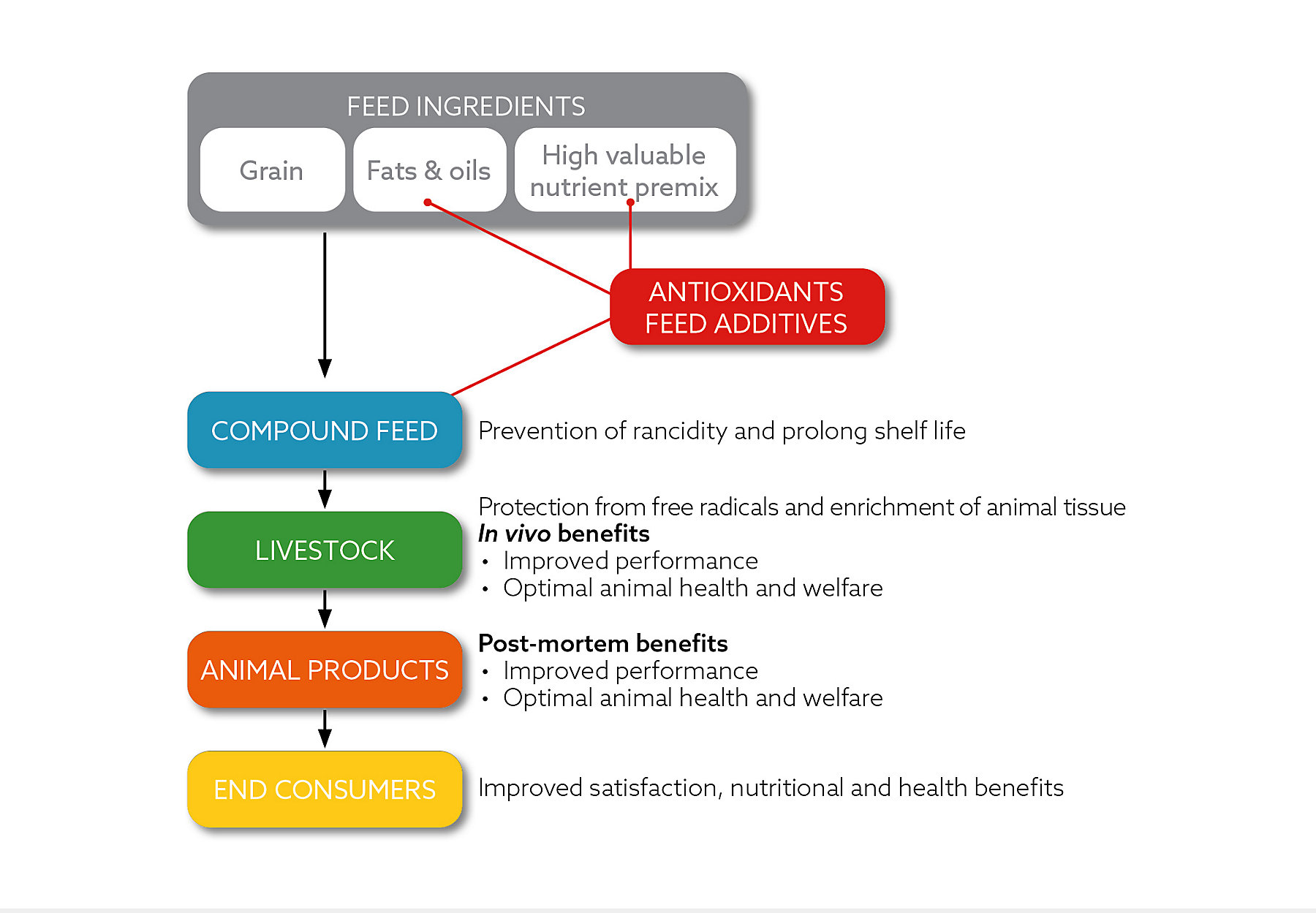Oxidation remains a key challenge for the pig production industry, as oxidation reactions negatively affect feed consumption, palatability, and nutritional content.
At Kemin, we understand that antioxidants are essential in swine diets. They preserve key nutrients like vitamins, pigments, amino acids, carbohydrates, and essential fatty acids, protecting them from oxidative damage.
As such, we've developed a range of antioxidant solutions helping you manage oxidation and boost pig health and wellbeing.

